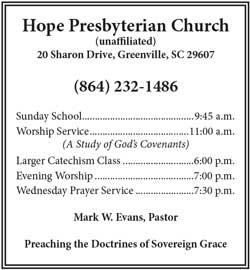Leading Academics Present Convincing Data on Prison Fellowship International (PFI) Bible-Based In-Prison Program as American Society of Criminology Meets to Examine Future of Criminology
ATLANTA -- Prison Fellowship International (PFI), an international nonprofit ministry working to transform the lives of prisoners through Jesus's love, was in the spotlight Thursday as a diverse group gathered at the American Society of Criminology 77th Annual Meeting to examine the future of criminology. During an examination of the robust role of religion in creating prisons that help restore prisoners to a positive, prosocial life trajectory, leading academics provided evidence of the radical results of PFI's signature faith-based in-prison program.
Dr. Byron R. Johnson, founding director of the Institute for Studies of Religion (ISR) at Baylor University, who co-authored the book "The Restorative Prison: Essays on Inmate Peer Ministry and Prosocial Corrections," along with Michael Hallett of University of North Florida, and Dr. Sung Joon Jang of Baylor University, presented findings from a groundbreaking multinational study of PFI's Bible-based in-prison program called "The Prisoner's Journey" (TPJ). The program operates in 36 countries and has graduated 600,000 prisoners. The study took place in Colombia and South Africa.
While previous research shows strong desire among prisoners to redeem themselves, Dr. Johnson – an expert on the scientific study of religion, faith-based rehabilitation programs and criminal justice – said prisoners face "a profound lack of opportunity for achieving redemption." This is where PFI programs fill the gap. Findings from the Colombia and South Africa research show that TPJ participation led to increased religious engagement, which triggered a "crystallization of discontent" that leads to "identity transformation" – the linchpin that leads to virtuous behavior.
"Since 1979, Prison Fellowship International has been working with our partners worldwide to transform the lives of prisoners," said David Van Patten, Chief Operating Officer of PFI and a panelist during a session on restorative prison alternatives. "We have seen firsthand the power of faith in triggering 'identity transformation' in prisoners that leads to moral awareness and virtuous behavior."
"Rehabilitation and restoration are possible for those prisoners who reject their criminal identity and embrace a new living narrative. Byron's groundbreaking work in this area enables practitioners like us to implement evidence-based best practices that advances these goals," Van Patten said.
"PFI is providing innovative prison programs that are becoming one of the centerpieces of the emerging field of positive criminology," said Dr. Johnson, who leads the Global Flourishing Study, the largest research project in Baylor University history.
PFI's Bible-based prison course and unparalleled access to prisons worldwide – through indigenous ministry affiliates and partners operating on six continents – continues to expand into more countries. Meanwhile, the next phase of Baylor University's longitudinal study of TPJ will expand to more countries and include post-prison research.
"Identity transformation and rehabilitation is a process, not an event," Van Patten said. "While essential, identity transformation alone is not sufficient to bring lasting change. Structural catalysts such as good jobs, mentors, life plans, small groups and a church family – which can be provided by local churches – are important to post-prison flourishing."
---------------------------------
About Prison Fellowship International:Since 1979, PFI has helped prisoners experience transformation from the inside out through the healing power of the Gospel. Its mission is to transform the lives of prisoners, their families and victims through a global network of ministry partners. PFI's new restorative justice initiative is designed to showcase and spearhead an open exchange of restorative justice practices in the prison context. Learn more at RestorativeJustice.org and PFI.org.


















